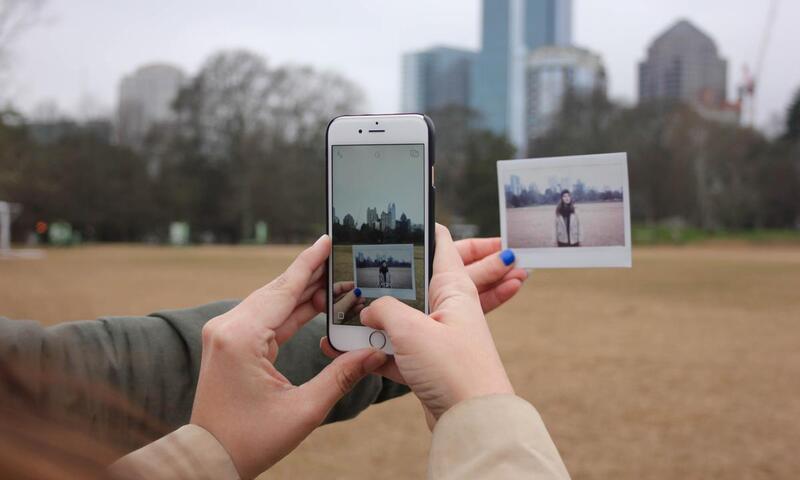Is Social Media Disconnecting Us? pt. I

At a time when we have an unprecedented ability to connect with anyone, anywhere, research is confirming what many of us intuitively know: we’re lonely. We’re actually not connecting, at least not in meaningful ways.
That loneliness is contributing to higher rates of anxiety, depression, and suicide, particularly among Millennials and Gen Z (also known as iGen). Author and researcher Jean Twenge wrote in an article for The Atlantic, “It’s not an exaggeration to describe iGen as being on the brink of the worst mental-health crisis in decades.”
Twenge and others trace this mental health crisis, at least in part, to our reliance upon hand-held devices and social media. As an article in Forbes Magazine explained, “Though we temporarily feel better when we engage others virtually, these connections tend to be superficial and ultimately dissatisfying.”
Rest assured, this is not an anti-social media rant. I regularly use and rely on many forms of social media to promote my work and maintain contact with family and friends across the globe. I too enjoy the little dopamine surge when I open up my laptop in the morning and see that last night’s Facebook post garnered dozens of likes. It makes me feel warm inside. It also keeps me coming back. By design.
In a recent article in Slate, Sean Parker, one of the early Facebook investors and its first president admitted: "The thought process was all about, ‘How do we consume as much of your time and conscious attention as possible?’ And that means that we need to sort of give you a little dopamine hit every once in a while, because someone liked or commented on a photo or a post or whatever, and that’s going to get you to contribute more content, and that’s going to get you more likes and comments. It’s a social validation feedback loop. … You’re exploiting a vulnerability in human psychology."
My eyes were opened to Facebook’s ulterior motives when I visited the extravagant main campus. All their wealth (and all their perks, such as free—amazing—food all day for employees and their families, car detailing, massage therapists, etc.) is generated without producing anything tangible. While Facebooks’ 1.94 billion users are endlessly traversing electronic bunny trails—all the while imagining that they’re connecting with friends—Facebook is stealthily gathering our information and selling it. This should cause all of us to suspect their stated goal: “To give people the power to build community and bring the world closer together.”
The vulnerability that Facebook, Twitter, SnapChat, and all other forms of social media are exploiting is our God-given need to connect. Human development fleshes out this need. For whatever glorious reason, God deemed that we should emerge into the world completely helpless and utterly dependent upon others to keep us alive and help us to grow up. Though human beings are arguably the most intelligent creatures on the face of the earth, we are also the most dependent for the longest period of time. Because God is always intentional, there’s meaning here.
For whatever glorious reason, God deemed that we should emerge into the world completely helpless and utterly dependent upon others to keep us alive and help us to grow up. Though human beings are arguably the most intelligent creatures on the face of the earth, we are also the most dependent for the longest period of time.
As our mothers and fathers (or other caregivers) provide for our physical, emotional, and spiritual needs, we learn to bond, or develop emotional attachments to them and later, to others. We also learn that expressing needs draws us into relationship. Think about it. When a baby cries, he’s letting his parents know that he has a need. Perhaps he’s hungry or wet. As they provide for his needs, they validate the needs and assure him that even when he is needy, he is loved. All of this happens without words or fanfare.
Part of why we can feel so disconnected is that many of us are at odds with being needy. American culture promotes a rugged individualism that marginalizes or judges neediness. We communicate in subtle and not so subtle ways that if you’re weak or needy, you’re less than.
Social media complicates this issue because it allows us to edit ourselves and present a filtered, perfected version to the world. My husband and I have noticed that when someone unrelentingly posts upbeat, happy photos with their spouse, chances are, they’re having serious marital problems. We all know that we can’t always be happy or always be on exotic vacations—but that doesn’t stop us from wanting to be that person.
Sharing on social media might be fun and cathartic, but it’s a pale imitation of real relationship. Real relationships are messy and vulnerable. We can’t control the other person. In order to get our relational needs met, we have to be known. If we only present ourselves to others in strength, they won’t know us: they’ll know our avatar. As a result, we’ll harbor doubts that others truly care about us. We’ll become more self-conscious, more self-critical, and less likely to admit when we’re depressed or lonely. After all, those kinds of posts rarely garner as many likes.
In part two of this article, I’ll talk more specifically about one of the other inherent dangers of social media and how we can find our way to true connection.


